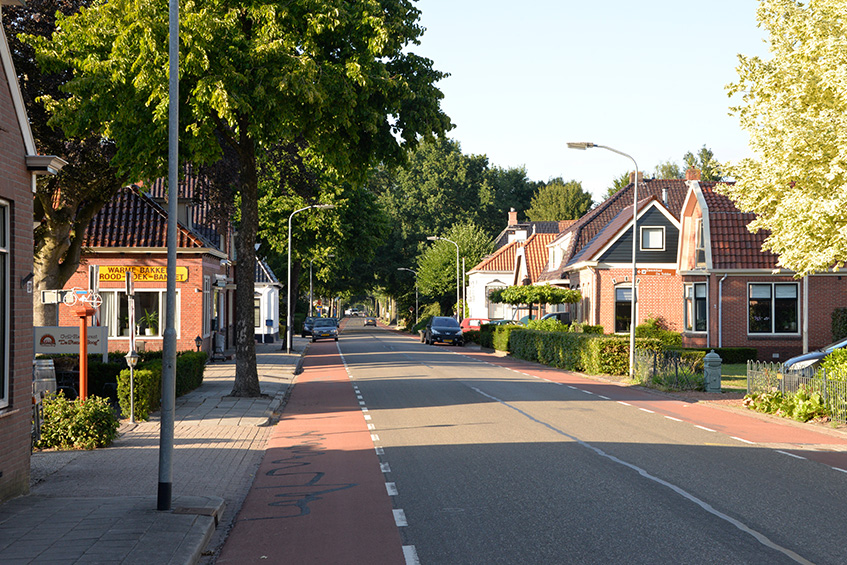Working for solutions in Groningen
Special report
The NAM joint venture with ExxonMobil (Shell interest 50%) in partnership with the Dutch government operates the Groningen gas field in the Netherlands. Regrettably, production has caused earthquakes that damaged houses and other properties, and caused many people in Groningen to feel unsafe. We are working with our partners to help people affected by earthquakes caused by gas production.
NAM has worked hard in recent years to reduce the impact on people, taking steps such as improving the handling of damage claims, running a programme to strengthen houses and public buildings, as well as socioeconomic development programmes. Public acceptance of gas production decreased rapidly as earthquakes continued to affect the region. In 2017, this led to the realisation that a new approach was required.

A range of actions have been taken to improve safety, liveability and economic prospects in the Groningen region.
Handling damage claims
In early 2018, the Dutch Ministry of Economic Affairs and Climate introduced a new policy to manage damage claims. This included setting up a public body to address a backlog of claims and process new claims. The ministry also required NAM to finalise 6,000 outstanding damage claims, and in July 2018 NAM sent final offers for compensation to these residents.
As part of the new policy, all claims since March 31, 2017, are now the responsibility of the Temporary Committee for Mining Damage, an independent public organisation. NAM was, and will remain, responsible for all earthquake-related costs. Shell has provided a guarantee that it will fund these costs, up to a maximum of 30% in the NAM, which equals Shell’s indirect interest in the Groningen production system.
Agreeing a way forward
The Dutch government has decided to phase out all production from the Groningen gas field by 2030. Shell and ExxonMobil, as shareholders of NAM, reached an agreement with the government that confirmed clear roles and responsibilities for all parties, including NAM as operator.
The Dutch government is responsible for setting production rates and balancing the risk of earth tremors with the supply of gas needed to meet energy demand from the field. The government is also responsible for all issues related to damage claims handling and the strengthening of buildings. NAM remains responsible for operating the field and paying all earthquake-related costs.
It was also agreed that NAM will contribute around $560 million to a fund to strengthen the economy and improve the quality of life of people in the Groningen region.
EXTERNAL VOICE

Roelof van den Berg
Director of 33 elementary schools in Groningen
The Klim-op school is in the Groningen area affected by earthquakes.
“In our case, making the school earthquake-proof and improving quality of life, were done simultaneously by NAM. There were a few cracks in the walls of our Klim-op elementary school in Middelstum, a small village in Groningen. With this occurrence and the fact that other buildings nearby were in danger of collapse, the 75 children and their parents no longer felt safe in the school. Obviously, we took this feeling seriously. The school, local government and the NAM agreed a new building was the only way to restore trust. With the new building, the parents and children feel safe again and the teachers have a state-of-the-art school that is powered by renewables. Also, NAM could use our school as a test case. And they should, because I manage eight other schools that have been affected by earthquakes. For us, Klim-op is a good starting point.”
 Our people
Our people
 Sustainable development goals
Sustainable development goals
 About our data
About our data
 Electricity
Electricity